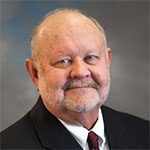Georgia Drug Defense Attorney
Georgia Practice Areas
Violation of Georgia Controlled Substances Act
If you were caught possessing an illegal drug in Georgia, you will be charged with a violation of the Georgia Controlled Substance Act (VGCSA). This law can be found in Title 16, Chapter 13 of the Official Code of Georgia, Annotated (O.C.G.A. § 16-13-1 et. seq.) The Act contains numerous statutes, some of which deal with definitions of terms, different drug schedules, punishments for certain offenses, drug related objects, counterfeit drugs, compounds used to manufacture drugs, civil asset forfeiture (where they try to take your vehicle, cash or other property away from you), the conditional discharge (a type of deferred adjudication) as well as the State Board of Pharmacy, prescriptions, medical research, registration requirements, and administrative sanctions for businesses engaged in handling controlled substances. Most criminal charges will arise out of O.C.G.A.§ 16-13-30 or O.C.G.A. § 16-13-31. If you had a large enough quantity of drugs in your possession, government prosecutors might indict you with violation of federal law, which would transfer your case to U.S. District Court rather than the Superior Court in the county in which you were arrested. The Georgia attorneys at Kunes Law Office stand ready to help with your Georgia drug charges by offering a free consult to discuss your rights and options.
Call now for a free consultation: (229) 382-4900
The Georgia Bureau of Investigations has a program to train police officers to identify marijuana, so that these samples don’t have to be sent to the crime lab. In fact, the GBI has received an award for this cost cutting program (https://dofs-gbi.georgia.gov/gbi-receives-national-award-marijuana-testing-100509). They are proud that marijuana testing by the crime lab has been reduced by 98%. What they don’t tell you is that they have replaced the scientific Gas Chromatography/Mass Spectrometry (GC/MS) testing with a series of tests that are superficial and prone to false positives. Drug defense attorney Patrick Kunes knows about the Duquenois-Levine Reagent, Microscopy, and Fast Blue B testing. He understands that these tests are not selective, in that they do not exclude all other possible substances. Patrick knows how to expose these tests as flawed according to GBI’s own protocol. If you have not verbally identified the leafy green substance as marijuana, then he knows how to attack the alleged identification by the State at trial. Furthermore, The Federal Farm Bill (2018 H.R. 2) was signed into law on December 20, 2018 and it removed "hemp" from the legal definition of marijuana in the Controlled Substances Act (CSA). Hemp is defined as cannabis with no more than 0.3 percent delta-9-tetrahydracannabinol (THC) per O.C.G.A. 2-23-3. In accordance with this federal legislation, the state of Georgia passed HB 213, Georgia Hemp Farming Act, on May 10, 2019, changing the law to exclude hemp from the legal definition of marijuanaas defined in the criminal statutes of Georgia. Accordingly, scientifically determining if a substance is marijuana has changed. It is clear that GBI's certification for local law enforcement examiners to perform existing testing of leafy green material suspected to be marijuana is no longer viable to separate legally-defined hemp from illegal marijuana.
They are proud that marijuana testing by the crime lab has been reduced by 98%. What they don’t tell you is that they have replaced the scientific Gas Chromatography/Mass Spectrometry (GC/MS) testing with a series of tests that are superficial and prone to false positives. Drug defense attorney Patrick Kunes knows about the Duquenois-Levine Reagent, Microscopy, and Fast Blue B testing. He understands that these tests are not selective, in that they do not exclude all other possible substances. Patrick knows how to expose these tests as flawed according to GBI’s own protocol. If you have not verbally identified the leafy green substance as marijuana, then he knows how to attack the alleged identification by the State at trial.
It is important to discuss your case with a qualified drug defense attorney who can explain the law as well as local prosecutors’ and judges’ attitudes towards drug offenders. Call Patrick Kunes today at (229) 382-4900 for a free consultation.
Our Team of Experienced Georgia Drug Defense Attorneys
Joe Kunes

- Member of Georgia and Florida State Bar
- Member of National Association of Criminal
- Defense Lawyers (NACDL)
- Georgia Association of Criminal Defense Lawyers (GACDL)
- Georgia Defense of Drinking Drivers (DODD)
- National College for DUI Defense (NCDD)
- Georgia Trial Lawyers Association (GTLA)
- American Trial Lawyers Association (ATLA)
Patrick Kunes

- Member of Georgia State Bar
- Georgia Association of Criminal Defense Lawyers (GACDL)
- Georgia Defense of Drinking Drivers (DODD)
- Past President Tifton Bar Association
- Life Member of NORML Legal Committee